Tell us a little bit about yourself and how you ended up in Colombia?
Henrik: I came to Colombia first in 2013. At that time I was studying Latin American Studies in Berlin, where a lot of people told me the best of things about Colombia and especially about Medellín. So I decided to come here in March 2013 for a 7 weeks internship at the organization “TECHO” which builds homes for the poorest of the poor. I fell in love with the city almost instantly and decided that I’d like to come back for a longer while. So I organized a semester abroad at the Universidad de Antioquia in Medellín. When I came back , I gained deeper insights into the market and business opportunities in Colombia and noticed the lack of organic drinks in the market.
Konstantin: At the same time I was finishing my studies in Hamburg and I had wanted to go to Latin America anyways afterward to practice my Spanish. When I came here in October 2013 we decided to give it a try with the organic drinks and have been here ever since.
What is in your opinion the best part about living here?
Konstantin: People are happy. For me as a German guy, growing up in rainy and cold Hamburg, it fascinates me still day by day to see the Colombians being happy, positive and nice pretty much all of the time. In Germany, a lot of people have “everything “: A high income, a family, a big house and car. But still, a lot of them are not happy at all. In comparison, a lot of the Colombians do not have anything, compared to a mid-class German family, but they still go out on the streets, have fun and enjoy. Happiness is transferable and it hits me every single day! 🙂
Henrik: I love the music. Cumbia, Salsa, also Bachata, those Latin rhythms for me have always been very interesting and since I came here they have become a very strong part of my life. All of my life I have been very passionate about percussion and music with a focus on its rhythm. I also love dancing. People from Colombia sometimes tell me I have a “tropical soul”. Being like I am, in Germany I often felt like an alien, dancing my lonely way through the cold rain. In Colombia, I feel like people are just as crazy as me and I like that very much.
What are your favorite destinations in Colombia?
Henrik: Having been here for 3 years already, I have seen way too little. It’s just been too much work! But now that we have finally started to distribute our drink in March I guess it will be the opposite: The work will take us more and more places. Generally speaking, I’m an urban kid, so I’d always prefer a city over a smaller town. From the cities I’ve got to know so far in Colombia, in terms of quality of living, nothing came remotely close to Medellín. When it comes to vacations, I loved the Isla Fuerte off the shore of the Caribbean, where we stayed for New Years Eve 2014-15.
Konstantin: I really haven’t traveled too much until now, either. Shortly after I got here my brother and I started our organic juice project. Not too long ago I went to Sapzurro on the Caribbean coast. I really loved it! It offers a variety of beautiful beaches and at the same time, it is calm and not too touristic (yet). Besides that, I love to travel to little towns around Medellín. My favorite village around Medellín is Alejandría. It’s really small but you can do lots of cool things. For example, there are a lot of rivers and waterfalls where you can go swimming.
Your favorite food and Colombian music?
Konstantin: Living in Medellín it feels wrong to say it but my favorite food is the Ajiaco soup which is typical food from Bogotá. So my Paisa friends a lot of times give me a hard time if I tell them. But that soup with avocado, sour cream and capers is freakin’ delicious!! Talking about music, to be honest, I’m not too much into the typical music from Colombia like Vallenato for example. There are some alternative groups that have had some success in the past years, though. I love Systema Solar, many of their lyrics are really funny. I saw a free concert of them a year ago. Their music is kind of a mix of electronic, indy and some hip hop parts.
Henrik: Konstantin is right, Vallenato is just not an option. Aside from that, I love everything. I even listen to Reggaeton when I’m in the right mood! My favorite food are the stews. I love Ajiaco Santafereño just like my brother, but I also love the Sancocho from Antioquia, so in my case, my Paisa friends are mostly cool with me. Haha! The only thing I really avoid is Mondongo (cow stomach), not too much into that.
(Sidenote by Patrick: Vallenato is for me a type of music that you just have to laugh at. Check out El Santo Cachon by Los Embajadores Vallenatos to get you started. It is hilarious.)
Are there any annual events that you recommend visitors and residents check out?
Henrik: Of course! You definitely have to go to El Primavera Fest next year. It’s basically a music festival in Medellín but with a strong focus on sustainability. We were invited this year to promote our drink there. Great people, nice music and all that in an unbelievable venue.
Konstantin: Another thing is the huge gastronomical event in Medellín every year in the beginning of October which is called Maridaje. It’s good for trying lots of different kinds of food, wine, beer, etc. At the beginning of the event, you can buy a little (empty) cup for wine. With that cup you can go to all the wine stands (around 50) and “sample” their different types of wine, for free obviously. When the event closes down you mostly don’t go home too sober. Hahaha!
You’re starting a business in Medellin – the D’CADA Organic Juice – how has the startup process been – pros and cons of doing business here?
Konstantin: I will start off with the cons. As you will find out really quickly in this beautiful country: Everything takes longer. You only gotta get yourself queuing in a grocery store to find out how unbelievably long it can take to actually charge two persons that both want to buy maybe 5 items. It’s incredible! Pretty similar has been our experience of starting a business in Colombia. Everything takes time, people sometimes say something and do something completely different or even worse: They don’t do anything! Haha! But this leads me to the pros. People may not do exactly what they say sometimes but at least they are nice and positive each time you see them. They welcome you, they smile, they ask you how you are and what’s new. It’s unbelievable how many people have helped us from the first day on the project. From the beginning on, when we really had nothing else but an idea written on a sheet of paper people started helping us. We talked to lots of people with a huge amount of experience and contacts in the beverage market of Medellín and they supported us from the first minute on. They made phone calls, accompanied us to meetings, invited us to events, etc. It was really impressive and had a huge positive impact on us and on the project.
Henrik: One good thing is that there are a lot of business opportunities in Colombia, which is great. Finding a market which is a “blue ocean” in organic drinks still feels like a gift from heaven to us. What I like about business culture here, and that seconds what Konstantin just said, is that Colombians tend to have high values like respect, friendliness, solidarity, which really helped us a lot along the way and makes doing business a lot more fun. But that’s also where the cons begin for me. Because “friendliness” is such a high value here, it goes hand in hand with a culture of “zero criticism”. If somebody doesn’t like your offer, you will simply never hear from them again instead of them saying “hey, your offer is shit” which could help to learn from one’s mistakes. And of course sometimes the stereotypes about the slow, lazy, sloppy Colombian worker come true as well as Konstantin just explained. Interestingly, this lack of service quality increases the bigger our business partners are. While the smaller partners seem to have a proper working ethic, people in the bigger firms sometimes make mistakes over mistakes, are unfriendly or just straight up incompetent.
Has it been easy to find providers? Does Colombia have a business directory like ThomasNet?
Konstantin: The closest thing to a business directory is the Páginas Amarillas, which is no-good at all. Most of the companies don’t even have websites. Any research is really tough work. We had to go the „Colombian way“, which is digging in the hole. In Colombia, even more than in Europe, it’s all about contacts: Who knows whom, who sits down with you, likes you, makes two or three phone calls and solves your problem. It involves a lot of talking, haciendo vueltas and being friendly and nice, but once we had figured that out and got used to it we really got along quite well.
I know that you have been working with interns from Europe – how has that process and experience been?
Henrik: Because of the fact that labor is so cheap in Colombia, there are hardly any internships offered here. In Europe, in spite of that, going to Medellín to gain experience as an intern, is a very common idea. For a small, internationally based company like ours fixing that gap can create a classical win-win situation: Young foreigners can come here to practice their Spanish and get insights into a Start-Up overseas, while we don’t have to get our fixed costs explode with contracting lots of locals in an early stage of our business development.
Konstantin: Of course the success of this kind of deals depends mainly on the people you get as interns. Basic Spanish knowledge is a must, especially in Colombia where hardly anyone speaks the least bit of English. Of course, we have had some young guys over who had imagined their internship to be an extended vacation with all the extras. But so far we believe we have always been able to find a proper balance between work and spare time.
What does the future look like for D’CADA?
Konstantin: Three years ago, when we began to discuss selling organic drinks in Colombia and made our first market research, we realized that if everything goes well this could become really big one day while the tendencies in healthy alimentation at that point were only beginning to show up. Since then the market has evolved exactly in the way we had promised and hoped for: Health stores are popping up in every corner of the cities, a new vegetarian restaurant seems to open their doors every other week, the gyms are growing like crazy. People in Colombia are starting to go to work by bike and really for the first time seem to think about their lifestyle and how they are going to mess up the world if they don’t change the way they are living. Meanwhile, the government does a lot of effort to push society in the right direction, e.g. with a new law which obligates the supermarkets to print warning signs on all the plastic bags they give out to their clients every day.
Henrik: Of course there is still a lot of stuff to be done. But all the things Konstantin just mentioned are underlining that the way our business model is working, creating healthy, sustainable and social drinks, has the chance to create a major impact in Colombia.
Finally, wrapping up this conversation, do you have any recommendations for aspiring expat entrepreneurs in Colombia?
Henrik: There is a saying in a lot of the expat communities, which goes “make dollars, spend pesos”, which means the local market isn’t worth it, it’s just good enough to profit from the cheaper prices. We don’t think the same. We believe in Colombia, we believe in la paz, the peace process with the FARC which could terminate the 50 years of civil war. We have always had trust in doing business in an honest and legal way, in doing things right from the first day. That includes choosing wisely what to do and with whom. It has so far worked very well for us.
Konstantin: For me, the most important thing if you want to make business here is to not just stand there and watch. Take action! We noticed in an early stage of the project that it wasn’t enough to only focus on our own problems. To make progress we also started trying to resolve some of the problems of our providers. Obviously, you have to be really careful about what you say and how you say it. Here is an example: We were really close to finally being able to produce our juice for the first time ever. The only thing missing was a machine to close the caps on our bottle. And the people in charge of the production plant each week kept on telling us that they were looking for the machine and that soon they would be able to buy it. At one point we took the decision to start looking for a suitable capper ourselves. It worked out and at the end they actually bought one of the cap machines that we found. If we hadn’t done that we would probably still be waiting for a capper here in Medellin! 😉
(Disclaimer: I met Henrik and Konstantin when they were looking for funding to get their business off the ground. I never ended up investing with them, but I did make a friendship and try their juice, which is pretty awesome. If you’d like to try it, a full list of distributors is available here. Although so far mostly in Medellin, I’m sure they should make it to Cali soon.)

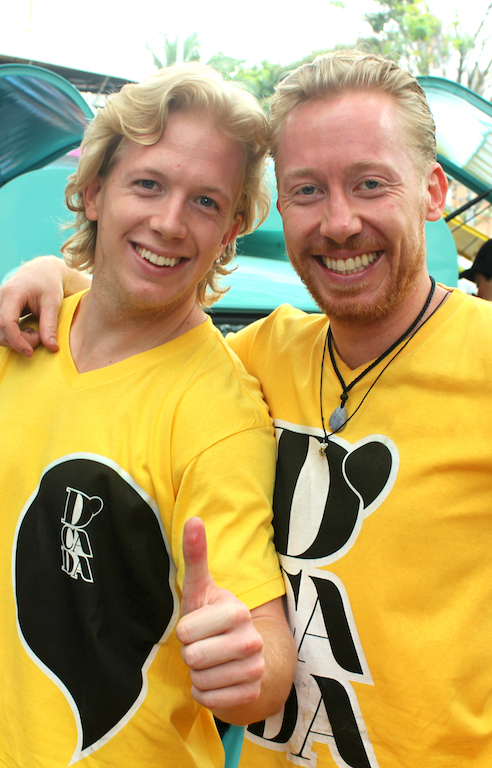
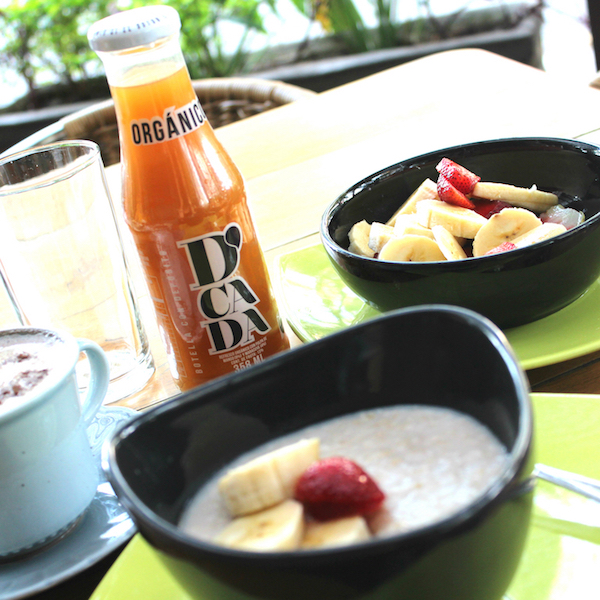

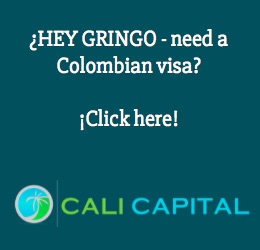
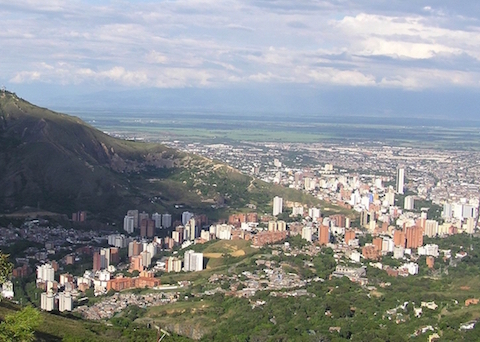
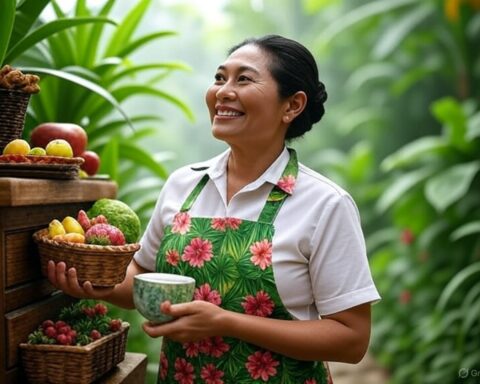
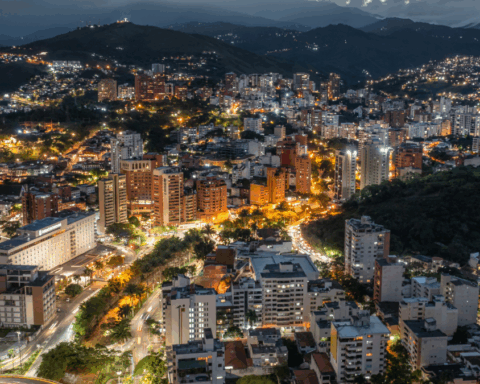
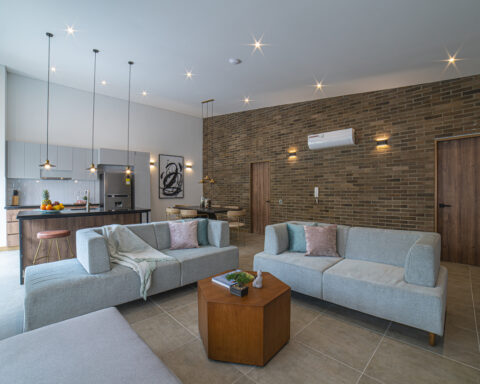
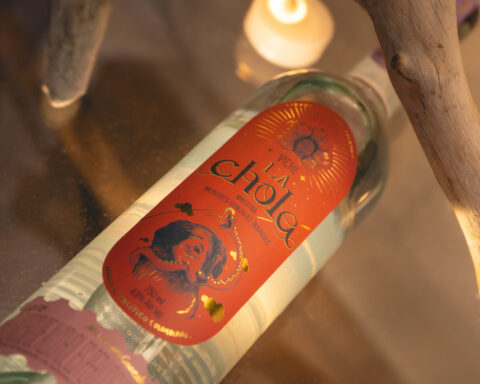
Hola from the 🇺🇸 .my wife (calena) and I are considering moving to Cali area and needing business ideas.Our passions are health fitness, tourism, anything in the pet industry .Any suggestions would be appreciated.
Carpe diem
Sean